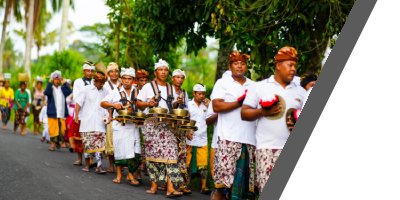The establishment and existence of the National Research and Innovation Agency (Badan Riset dan Inovasi Nasional, or BRIN) was mandated by Article 48 of Law No. 18 of 2019 on the National System of Science and Technology (Sinas Iptek). Following the Law, the President released Presidential Decree (Keputusan Presiden) No. 113/P of 2019 regarding the establishment of state ministries in the Cabinet for the period 2019–24, wherein BRIN was included. At that time, however, BRIN was part of the Ministry of Research, Technology and Higher Education (Kemenristek- Dikti). Bambang Brodjonegoro was the minister of Kemenristek-Dikti and, at the same time, the head of BRIN.
On 28 April 2021, President Joko Widodo (Jokowi) dissolved Kemenristek- Dikti and bestowed the authority to oversee research in the country upon the BRIN. Then, on 1 September 2021, based on Presidential Regulation (Perpres) Nos. 33 and 78 of 2021, various research institutes, such as the Indonesian Institute of Sciences (LIPI), the Agency for the Assessment and Application of Technology (BPPT), the National Nuclear Energy Agency (BATAN), and the National Institute of Aeronautics and Space (LAPAN), and research agencies in some ministries were integrated into BRIN.
To execute research related activities, BRIN has 12 Research Organizations (RO) or institutes. They are 1) Social Sciences and Humanities; 2) Archeology, Language, and Literature; 3) State Governance, Economy, and Community Welfare; 4) Aeronautics and Space; 5) Nuclear Energy, 6) Life Sciences and Environment; 7) Earth Sciences and Maritime; 8) Health; 9) Agriculture and Food; 10) Energy and Manufacture; 11) Nanotechnology and Materials; and 12) Electronics and Computer Sciences.
Research Organization is a non-structural organization that carries out research, development, assessment, and application (litbangjirap), as well as inventions and innovations. It is led by a chairman (kepala). The main activity of RO is only to produce knowledge. The responsibility of translating knowledge into government policies is taken over by the Directorates within the Deputy of Development Policy. In line with this, the Institute of Social Sciences and Humanities (ISSH) or Research Organization for Social Sciences and Humanities has the task of: i) producing knowledge that meets ethics and research integrity, and ii) conducting research and scientific activities that make a real contribution to answering Indonesian issues and contemporary dynamics.
RESEARCH CENTERS
The ISSH-BRIN has eight research centers, namely:
- Research Center for Politics (Pusat Riset Politik)
- Research Center for Society and Culture (Pusat Riset Masyarakat dan Budaya)
- Research Center for Area Studies (Pusat Riset Kewilayahan)
- Research Center for Population (Pusat Riset Kependudukan)
- Research Center for Education (Pusat Riset Pendidikan)
- Research Center for Law (Pusat Riset Hukum)
- Research Center for Religion and Belief (Pusat Riset Agama dan Kepercayaan)
- Research Center for Religious Moderation and Harmony (Pusat Riset Kerukunan dan Moderasi Beragama)
 Research Center for Politics consists of five research clusters: (1) Foreign Policy and International Issues; (2) Ethnicity, Gender, Religion and Politics; (3) Political Representation, Government and Regional Autonomy; (4) Conflict, Defense and Security; (5) Political Economy and Strategic Issues. The center has a vision to become a scientific reference and a recommendation in the conceptualization of independent and trusted government policies, both at the national and international levels. It also has a mission to encourage the democratization process towards the establishment of a rational and conducive national political system for the realization of the ideals of people sovereignty, plurality, rule of law, civilization and upholding human rights, improvement of people’s welfare and fulfillment of a sense of justice for all elements of the nation.
Research Center for Politics consists of five research clusters: (1) Foreign Policy and International Issues; (2) Ethnicity, Gender, Religion and Politics; (3) Political Representation, Government and Regional Autonomy; (4) Conflict, Defense and Security; (5) Political Economy and Strategic Issues. The center has a vision to become a scientific reference and a recommendation in the conceptualization of independent and trusted government policies, both at the national and international levels. It also has a mission to encourage the democratization process towards the establishment of a rational and conducive national political system for the realization of the ideals of people sovereignty, plurality, rule of law, civilization and upholding human rights, improvement of people’s welfare and fulfillment of a sense of justice for all elements of the nation.
 Research Center for Society and Culture has two main research focuses ‘the society’ and ‘culture’. The subject of this center is the society with its diversity and complexity, examining beyond the statistical data as population numbers. It also covers research on the societal organization, its values (religious, spiritual or metaphysical, social, and cultural), world views and culture. Researchers in this center derive from different social and humanities backgrounds such as anthropology, sociology, history, linguistics, communication, philosophy, law, economic, psychology, criminology, and other relevant background. The diverse scientific backgrounds enable the researchers to unfold the societal different layers and perspectives in Indonesian society, including within one community, inter-communities, inter regions which has different identity, characteristics, dynamics and different relations. This center also conveys the voice of the non-mainstream communities or groups, such as minority groups, remote communities, traditional or customary communities, vulnerable groups and the power relations in both rural and urban areas, in agricultural, forestry, or maritime context. In cultural research themes, this center focuses on local communities’ special identities and cultural richness, such as the oral traditions or traditional knowledge on herbs and medicines, local delicacies, and local designs reflected in local crafts, housings or other cultural artifacts.
Research Center for Society and Culture has two main research focuses ‘the society’ and ‘culture’. The subject of this center is the society with its diversity and complexity, examining beyond the statistical data as population numbers. It also covers research on the societal organization, its values (religious, spiritual or metaphysical, social, and cultural), world views and culture. Researchers in this center derive from different social and humanities backgrounds such as anthropology, sociology, history, linguistics, communication, philosophy, law, economic, psychology, criminology, and other relevant background. The diverse scientific backgrounds enable the researchers to unfold the societal different layers and perspectives in Indonesian society, including within one community, inter-communities, inter regions which has different identity, characteristics, dynamics and different relations. This center also conveys the voice of the non-mainstream communities or groups, such as minority groups, remote communities, traditional or customary communities, vulnerable groups and the power relations in both rural and urban areas, in agricultural, forestry, or maritime context. In cultural research themes, this center focuses on local communities’ special identities and cultural richness, such as the oral traditions or traditional knowledge on herbs and medicines, local delicacies, and local designs reflected in local crafts, housings or other cultural artifacts.
 Research Center for Area Studies conducts research on the history, politics, economics, law, and culture of societies in Southeast Asia, Africa, Europe, and Asia-Pacific. The center studies transnational connectivity of people, goods, and ideas, comparative knowledge of countries, societies, and cultures, as well as to examine economic, political, and cultural diplomatic relations across the regions. In conducting area studies research, the center seeks to gain a better understanding of Indonesia’s strategic position in the regional and global contexts, and contribute to strengthen the position drawing on comparative research between countries in Southeast Asian, African, European, and Asia-Pacific regions.
Research Center for Area Studies conducts research on the history, politics, economics, law, and culture of societies in Southeast Asia, Africa, Europe, and Asia-Pacific. The center studies transnational connectivity of people, goods, and ideas, comparative knowledge of countries, societies, and cultures, as well as to examine economic, political, and cultural diplomatic relations across the regions. In conducting area studies research, the center seeks to gain a better understanding of Indonesia’s strategic position in the regional and global contexts, and contribute to strengthen the position drawing on comparative research between countries in Southeast Asian, African, European, and Asia-Pacific regions.
 Research Center for Population conducts studies on population issues at local, regional, and national levels. With a population of over 270 million, Indonesia faces challenges in managing its population and encounters various impacts due to the significant number of its population. It is partly the responsibility of this center to provide strong research on population that can be utilized by the government in dealing with the issue of population. The main themes of the studies in this center are population mobility, family and health, human resources and employment, and human ecology. It implements multi-disciplinary studies with the support of researchers with diverse academic backgrounds. Researchers in this center have advanced degrees in various background studies such as demography, human geography, anthropology, sociology, economics, statistics, human ecology, regional planning, public health, and other social sciences.
Research Center for Population conducts studies on population issues at local, regional, and national levels. With a population of over 270 million, Indonesia faces challenges in managing its population and encounters various impacts due to the significant number of its population. It is partly the responsibility of this center to provide strong research on population that can be utilized by the government in dealing with the issue of population. The main themes of the studies in this center are population mobility, family and health, human resources and employment, and human ecology. It implements multi-disciplinary studies with the support of researchers with diverse academic backgrounds. Researchers in this center have advanced degrees in various background studies such as demography, human geography, anthropology, sociology, economics, statistics, human ecology, regional planning, public health, and other social sciences.
 Research Center for Education conducts research on education system and education studies. Including in its research activities are research on education policy, curriculum, vocation system, politics of education, education for multicultural society, and also system of transmission of knowledge. Most of researchers at this center were previously part of the Ministry of Education and Culture. With the establishment of BRIN, they joined this new agency. This center aims to provide a solid research on education and can be used by Indonesian government for the improvement of its human researches as a key for national development.
Research Center for Education conducts research on education system and education studies. Including in its research activities are research on education policy, curriculum, vocation system, politics of education, education for multicultural society, and also system of transmission of knowledge. Most of researchers at this center were previously part of the Ministry of Education and Culture. With the establishment of BRIN, they joined this new agency. This center aims to provide a solid research on education and can be used by Indonesian government for the improvement of its human researches as a key for national development.
 Research Center for Law conducts research on law and legal issues with mono-disciplinary, multi and interdisciplinary approaches to gain a depth scientific understanding on the current legal system in Indonesia and in the world and how these legal systems interact with the society and the environment. The center was established in 2021 with the merger and integration of government research institutes under the National Research and Innovation Agency (BRIN). The area of research of the center covers three major focuses, Law Enforcement and Court System, National Law Development, and Law and Society.
Research Center for Law conducts research on law and legal issues with mono-disciplinary, multi and interdisciplinary approaches to gain a depth scientific understanding on the current legal system in Indonesia and in the world and how these legal systems interact with the society and the environment. The center was established in 2021 with the merger and integration of government research institutes under the National Research and Innovation Agency (BRIN). The area of research of the center covers three major focuses, Law Enforcement and Court System, National Law Development, and Law and Society.
Research Center for Religion and Belief focuses its research on religious movements and belief systems in Indonesia. How religions and beliefs influence and being influenced by public policy, politics, and culture. This center aims to produce rich knowledge based on studies on diverse religions and beliefs in the country. Area of studies in this center include spirituality and mysticism, religion and state, religion and ecology, religious policies, religious rituals, religious pilgrimages, religious dietary and system of food consumption, and religious movements.
Research Center for Religious Moderation and Harmony focuses its research on how to manage and maintain religious diversity in Indonesia to become the strength of this country, not a source of conflict. This center was previously part of the Ministry of Religious Affairs. Among research areas of this center are religious radicalism and terrorism, religious conflict and harmony, inter- and intra-religious relationship.
